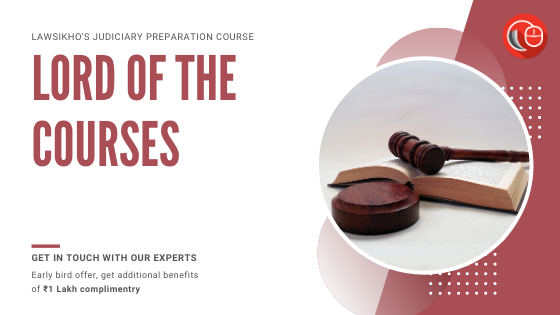This article is written by Vividh Jain, a student of the Institute of Law, NIRMA University. In this article, the author talks about the criminalisation of copying or cheating in examinations.
Table of Contents
Introduction
Our education system is faced with a major issue of cheating. Unqualified applicants cheat to secure university seats. Cheating is a malpractice by which we build an unjust culture. Some students clear the test by cheating, but they can’t adapt to the new economy as they can not deal with knowledgeable individuals. In India, schools are affiliated with central boards or associated with state boards, and according to a study, copying is more common in state boards than in central boards.
Forms of cheating
Technology has increased the offence of cheating. Nonetheless, malpractices in the examination these days have become a booming business. Lack of knowledge is the underlying cause of intensified cheating. Students worry about the future and end up cheating. Some of these are the major forms of cheating in examinations:
- Bribing the invigilator,
- Mass copying,
- Essay mills,
- Bluetooth phones and headsets which are used to receive answers,
- Impersonating the students,
- Leaking exam papers.
Contract cheating
Contract cheating, as we describe here, is a relational arrangement between three actors; a student, their institution, and a third person who performs tests for the former to be given to the latter but whose involvement is not allowed. The contract cheating epidemic presents theoretically a significant danger to the consistency and expectations of higher education across the globe. Suggestions have been created to solve the issue through legislative methods, but we consider that the existing laws are not suitable for this task.
Issues
Some of these concerns come in our mind when we decide to enact laws against the offence of copying in examinations:
- Would the proposed new law against a range of concerns that need to be addressed before any legislative solution will be successful?
- Does changing the legal status of these offences of contract cheating make it impossible to happen?
- Can it be done differently? If not, who is actually to be charged and what crime are they committing?
- Will it answer the factors of contract cheating?
These above mentioned are some concerns related to the enactment of new laws against the offence of copying in examinations. Further in this article, not only the proposed solutions to such concerns would be discussed, but also discuss a variety of possible unexpected effects as well and also decide that a legitimate solution is feasible.
Current legal position
In general, criminal law serves to safeguard culture and social order, and the State usually presents charges under criminal law (e.g., murder, robbery, theft). Civil lawsuits are generally taken against each other by private persons or associations, which typically aim to rectify any sort of harm. This article concentrates on criminal law, as it represents the desires and concerns of the entire community. Throughout the case of contract cheating, the evidence is always present against those who did not perform their duty, so it would be fair to assume that it is in the public interest to participate in cases where (for example) practitioners of healthcare professions, architects, attorneys or others have bribed someone to perform tests for them, rather than doing the job necessary to qualify directly. While there are many actors and legal associations involved in the contract cheating process, much research on the legal situation has concentrated on the firms and contract cheating services providers.
The situation in New Zealand, where legislation passed in 2011 made it a crime to offer or promote cheating facilities, is an example of the problems raised by the implementation of different laws to combat contract cheating (Section 292E, Education Act, 1989). Cheating facilities involve performing or providing any assignment or other job needed for any student to complete. An individual who commits an offence under Section 292E is entitled to a penalty of no more than $10,000 upon summary conviction. However, the statute has only been applied once to our awareness in 2014 and the argument has not been followed to completion. The court was pleased that the necessary degree of wrongdoing had been identified concerning 292E and granted an order for confiscation to recover properties of a ‘contract cheating corporation’ for further investigative purposes, however, the prosecution was not followed past this stage as the order for confiscation was an appropriate standard of closure.
Essentials required for the offence of Contract Cheating
- Strict Liability: If a strict liability offence was committed against contract cheating, then the person who supplies the assignment, would be liable solely for supplying such assignment, be it an ‘essay mill’ or individual, unless they can prove that they had taken all the necessary and reasonable steps to ensure that the student did not submit the assignment to a provider of Higher Education as their job (i.e., defence of due diligence). Disclaimers included in essay mills’ ‘Terms and Conditions’ should not, by themselves, be called ‘reasonable or necessary actions,’ because it is well known that these are unlikely to be understood, and contradict corporations’ offering re: ‘plagiarism-free’ protections, having work done according to a specific grade standard, draft assignment version, etc.
- Intention: Another method to resolve the ‘intent’ problem comes from a concept utilized with certain older U.S. statutes, that litigation can be effectively taken on the grounds of what the participants would have learned fairly. Therefore, if a custom-essay writing platform contains a warning stating the work is not to be used for comparison purposes but instead advertises different scores, a plagiarism-free guarantee, the existence of draft copies, etc., then it would be fair to conclude that the student is conscious that the work is to be used as though it were the student’s own. This method therefore also allows the prosecution authority to create this argument before an offence is committed beyond a reasonable doubt.
Criminalisation of these activities
If performed at university grounds (e.g. assault or theft), they should be treated through legal means. Except in the case of contract cheating, that may entail criminalizing a practise that has historically been handled primarily by legal methods and exists mostly within the academic study background. Consequently, taking a legitimate solution to contract cheating utilizing current legislation appears to entail consideration of student indictment. The justice framework has demonstrated hesitation as the students conduct plagiarism to get active.
There are several ‘gains’ to be achieved by a student who completes an assignment; the recipient receives college credit and a certain degree of reward and becomes more likely to be employable; they may escape any extra tuition fees and living costs incurred in returning assignments or research periods; they can prevent being expelled from their university. There are often theoretically ‘losses’ suffered by a supplier in higher education where an applicant participates in contract cheating, e.g. personnel hours have taken reviewing the situation, determining the judgment and labelling it. So if we imagine a student purchasing an essay from a commercial company and then sending it as their job, there is a claim that this suits a concept of cheating due to dishonesty discovery being created. That is the argument from the company’s terms and conditions to students; ‘we supply you with a product, so if you want to abuse it, that’s your fault.’
Other legal considerations
The central relationship between the student and the dissertation writer and the student and the University is mainly (but not exclusively) regulated by contract law (civil). While we concentrate on this paper specifically on the position that criminal law may play in stopping contract infringement, we understand that civil law may also play a role in violating communication claims. Nonetheless, it is doubtful that students will choose to bring lawsuits in court against essay mills if the student does not get what they have agreed with and a university is unlikely to make a statutory argument against a student with damage caused by marking while assessing an application that was not necessarily the student’s work except for lack of time and money when ultimately investigating academic misconduct. Nevertheless, there are possible methods and potential pitfalls to address contract cheating by civil law.
In any situation where contract cheating requires a legitimate path, the individual committing the ‘abuse’ would most definitely be named as one, for example, undergraduate, or a parent/guardian, or a university staff member. The presumption will then be that this person, as a potential witness to a crime, would contact the police and turn over assignments, records of originality, emails, etc. before uncovering the ‘crime.’ There is a possibility that this will potentially decrease the risk of contract cheating being reported, but that may be offset by rendering it a ‘reporting duty,’ something that can also extend to teachers and students of other technical credentials (nursing, law, etc).
A system or standard of measurement
One of the most controversial parts of contract cheating and yet one of the most attractive for those who use the service providers, is that it is hard to detect and the assignments usually pass, although it is marginally easier to detect when markers are informed that some assignments were bought in a trial. Even if a symbol causes a doubt, this alone is not enough to show conclusively that there has been contracting infringement. This suggests conventional metrics of problematic behaviours, such as the pace at which individuals are found engaged in it, can be of no benefit. And we don’t have a clear objective measure of how large the issue is, and no benchmark to compare against the inventions. Subjective and conditional measures exist, the easiest of which is clearly to question the students whether they have already used such services. Several experiments have attempted to address this problem and reported findings to range from none to over 20 percent, although the majority of research use relatively limited samples. And we’d be seeking to calculate a transition in noisy, small datasets.
Even though there is an increase in the amount of self-report contract cheating for graduates, it would be impossible to decide if the shift was genuine, or if the behaviour’s sudden illegal classification implied the graduates are less inclined to admit that they were interested. It, theoretically, often raises strategic challenges for politicians because it will be impossible to produce reliable proof of a compliant approach’s effectiveness in terms of reducing the occurrence of contract cheating. This may be balanced by the effective prosecution of commercial contract cheating companies, particularly when the business allegedly created substantial income (self a metric) from contract cheating, as in the case of assignment.
Economic play of demand and supply
Whether criminalization will fix the roots of contract cheating is difficult to see. There’s a demand for contract cheating programs, otherwise, hundreds of companies will not be selling them. Several reasons have been suggested for this reason, close to the triggers of academic fraud in general (not only contract cheating); a desire to get a higher grade; bad time management; personal/cultural values, e.g. that plagiarism is not wrong; derogatory views against authority/tutors; abundance of incentives (e.g. simple to do); marketing by universities concentrating on recruiting and retention that clashes with the sanctioning or even expulsion of graduates based on plagiarism. Many of these motivators, which are essentially market forces driven by demand, would not be directly diminished by the criminalization of supply, although new specific offences regarding the supply side of contract cheating could be brought to the attention of many students who could act as a deterrent to commissioning.
Conclusion
There are a large number of hurdles to be addressed if the international higher education sector and policymakers want to follow a legislative solution to combating contract cheating; specific regulations are likely to be needed, which tackle the problem of ‘purpose’ to (help) cheating and analysis of how they will operate across foreign boundaries. Nevertheless, as it has shown above, there is a legal precedent to demonstrate that a new law could be enacted or that existing laws may be changed, using the concept of strict liability and followed across borders.
Even if these can be overcome, however, it is not completely obvious that a legal approach would be successful, and that we’ll ever know, or it would address contract cheating services demand. Nevertheless, people believe that a legal approach should be taken seriously as it would meet the two main criterias for supporting a prosecution; evidence would be accessible and it would be in the public interest. Through concept and practice, contract theft is morally unethical and represents a possible danger to the quality of higher education. They gave practical suggestions to follow a regulatory solution.
References
- https://link.springer.com/article/10.1007/s40979-017-0022-5
- https://indialegalnews.com/cheating-in-iaf-exam/
LawSikho has created a telegram group for exchanging legal knowledge, referrals and various opportunities. You can click on this link and join:
 Serato DJ Crack 2025Serato DJ PRO Crack
Serato DJ Crack 2025Serato DJ PRO Crack











 Allow notifications
Allow notifications


